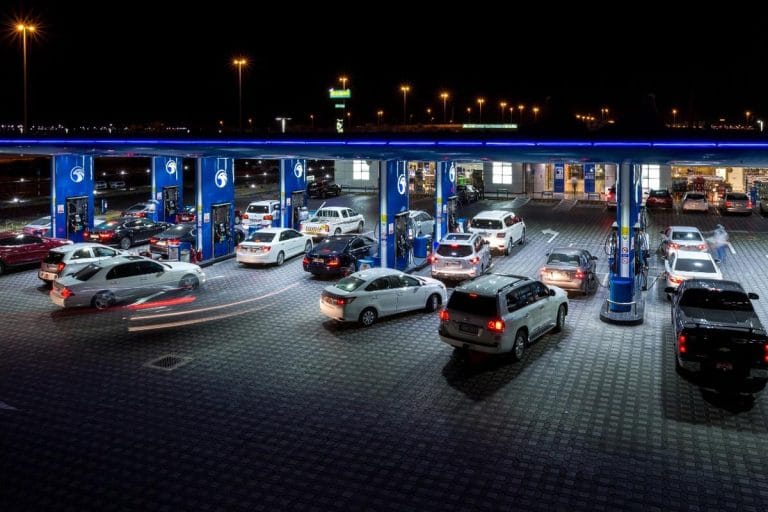The UAE is subsidising part of petrol prices for low-income citizens, as it introduces an “inflation allowance” amid rising costs of basic goods and services in the country.
The new allowance will provide a monthly subsidy of 85 percent of the fuel price increase over AED 2.1 per litre, state news agency WAM has reported.
The move is part of the UAE president’s directive to restructure its social welfare programme for low-income Emiratis, effectively doubling its size to AED 28 billion.
According to the new fuel subsidy scheme, the head of a family will receive a monthly subsidy of 300 litres, while working wives will receive a subsidy of 200 litres.
Petrol and fuel prices in the UAE have increased over the last few months, jumping by over 74 percent since the start of the year. In January, rates were at AED 2.65 per litre for Super 98 petrol. In July, it costs AED 4.63 per litre.
The inflation allowance will also provide food, electricity, and water subsidies, the report showed.
The government will bear 75 percent of food price inflation for eligible Emirati families, and will provide a monthly subsidy of 50 percent for specific electricity and water consumption quotas.

Education, housing, and unemployment allowances
The reformed social welfare programme now has a provision of AED 5 billion for annual social support allocation, compared to the previous AED 2.7 billion, according to the new directive.
Other types of allowances will be introduced as well – including housing (up to AED 2,500) and university (up to AED 3,200) stipends, as well as allowances to unemployed citizens – both job seekers (up to AED 5,000 for six months) and those over the age of 45 (up to AED 5,000).
In the previous programme, there were three allowances allocated to Emirati families – for the head of the family, the wife, and the children. The reform is set to increase these allowances, where a family member could get up to AED 13,000 per month.





